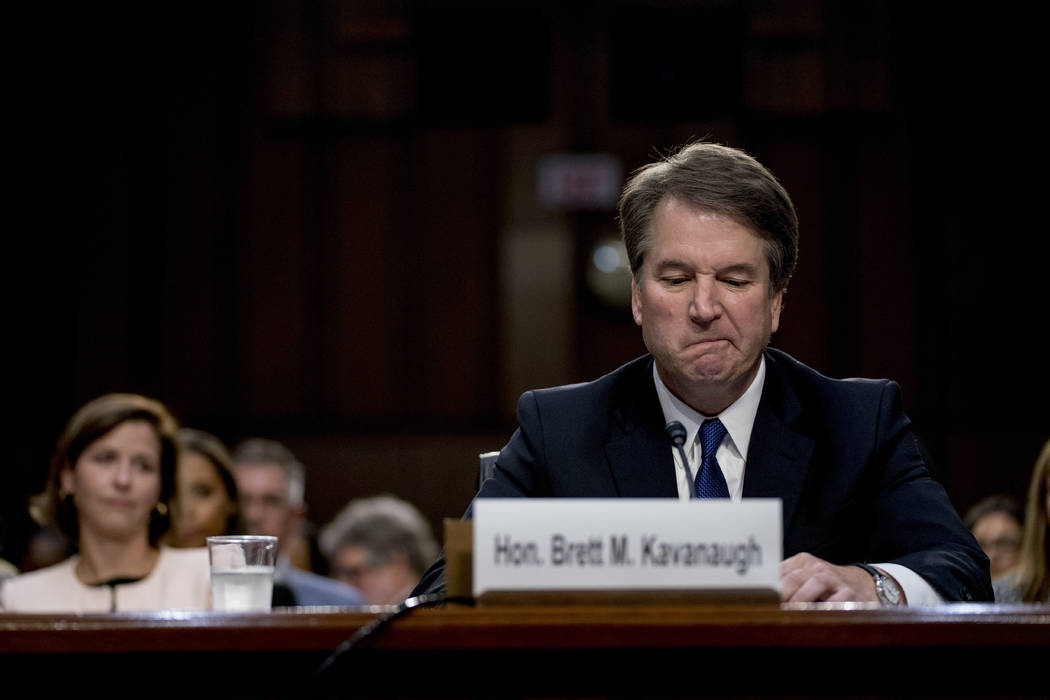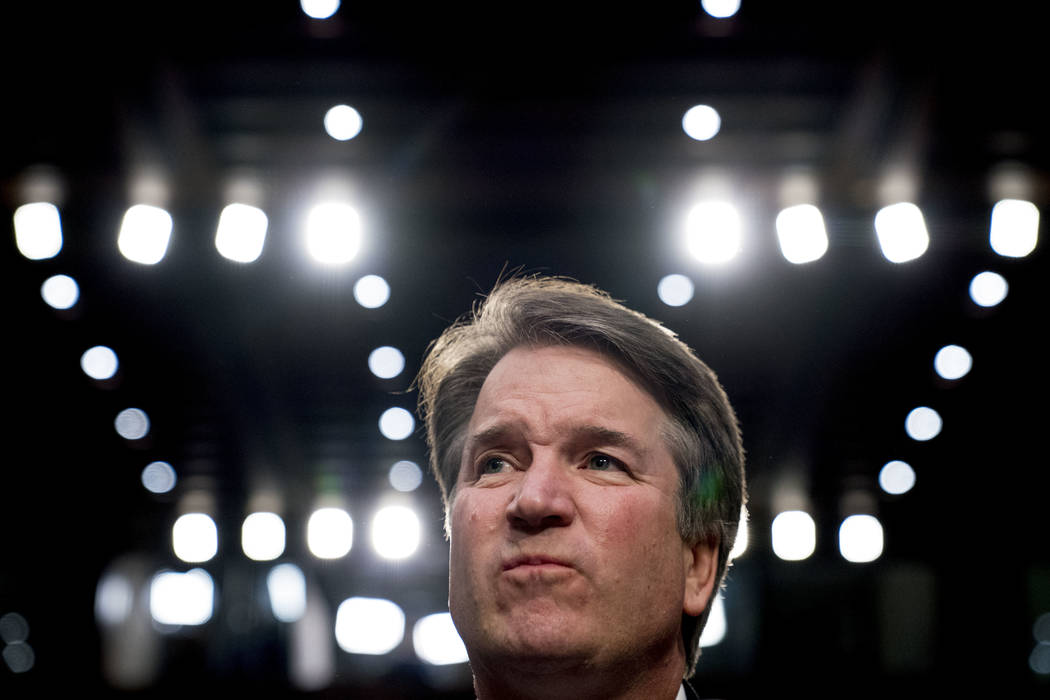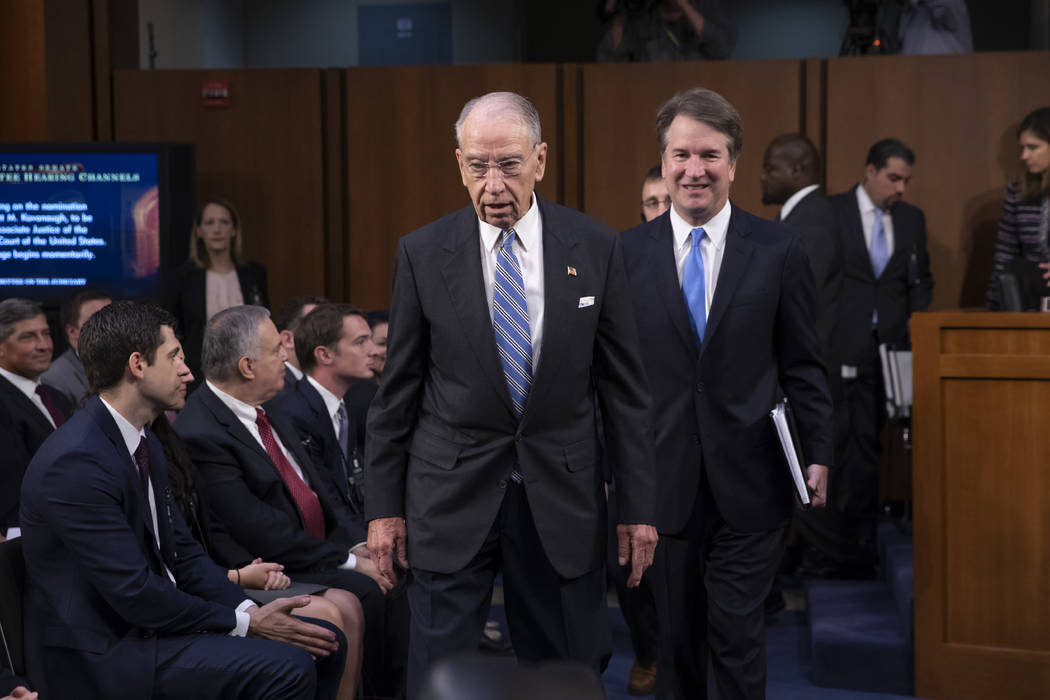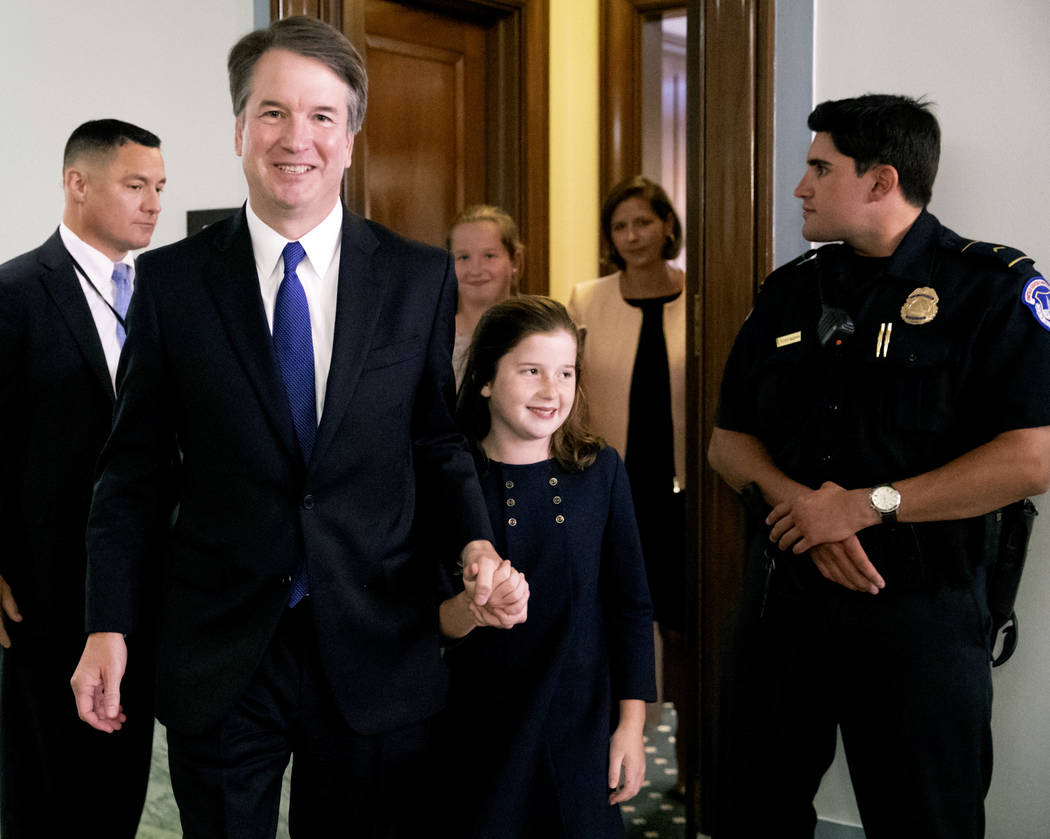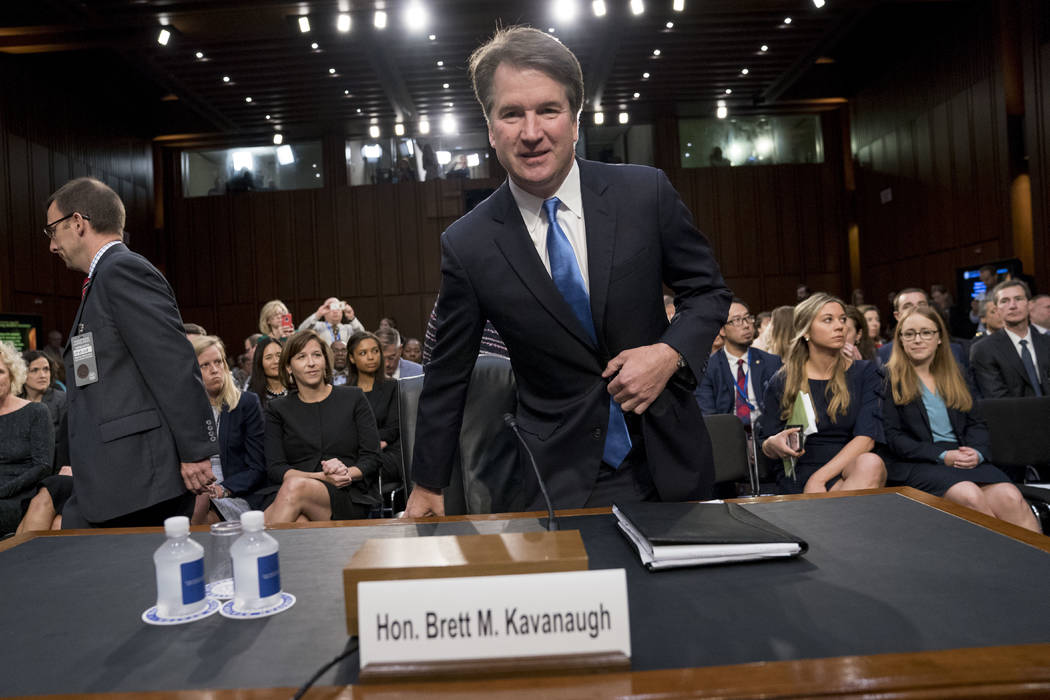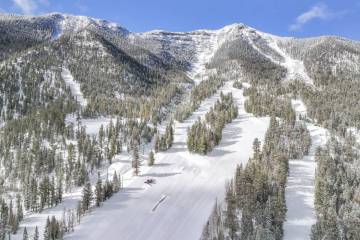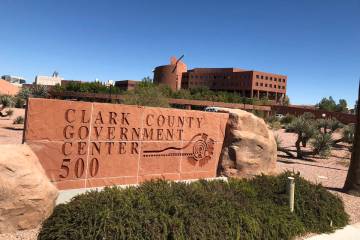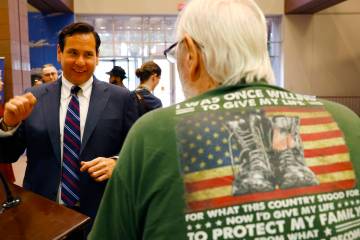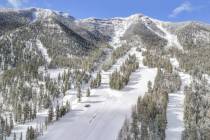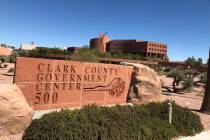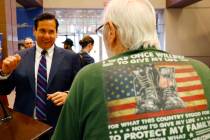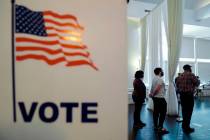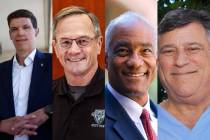Supreme Court nominee Kavanaugh promises judicial independence
WASHINGTON — Judge Brett Kavanaugh found himself in the hot seat Wednesday, sparring with senators about abortion, guns, presidential pardons, stolen files and sexual harassment.
It was another whirlwind day of interruptions by screaming protesters and flaring tempers from lawmakers who peppered the Supreme Court nominee in the second day of his confirmation hearing.
Kavanaugh, 53, was nominated July 9 by President Donald Trump to fill a vacancy left by retiring Justice Anthony Kennedy, a critical swing vote on the Supreme Court who sided with the liberal wing on same-sex issues and abortion rights.
Trump told reporters he watched some of the hearings and was impressed by Kavanaugh’s intellect, and the way he handled the questioning by senators.
“He was born for the position,” Trump said.
With Republicans holding a 51-49 Senate majority, Democrats are unlikely to stop confirmation without GOP defections. Senate Majority Leader Mitch McConnell, R-Ky., wants a Senate vote before the Supreme Court’s term begins in October.
Still, Democrats sought to paint the nominee as a partisan, and they questioned whether his conservative views would tip the court to the right and out of the judicial mainstream.
Questions on executive power
Senators grilled Kavanaugh about his views on executive power and whether a president should be exempt from criminal prosecution — questions that have taken on added seriousness as Trump, administration officials and the 2016 presidential campaign become the focus of several investigations.
“No one is above the law under our constitutional system,” Kavanaugh told the Senate Judiciary Committee.
But Kavanaugh has shifted his stance on whether sitting presidents should be subject to civil lawsuits or outside investigations while in office.
In the 1990s, Kavanaugh worked for independent counsel Kenneth Starr in the investigation that led to the impeachment of President Bill Clinton. But he said his views changed after the 9/11 terrorist attacks that saddled President George W. Bush with foreign affairs with no time for personal legal issues.
Responding to questions about Trump and pardons for subordinates who refuse to cooperate with special counsel Robert Mueller or other investigative panels, Kavanaugh was less direct.
Kavanaugh called hypothetical and refused to answer a question about whether a president could offer a pardon in advance to convince someone not to cooperate with an investigation.
“I hope for the sake of the country that it remains a hypothetical question,” Sen. Patrick Leahy, D-Vt., retorted.
Kavanaugh also was quizzed on the resignation of appellate court Judge Alex Kozinski, a mentor who stepped down after allegations of sexual harassment by women clerks and staff.
Sexual harassment in any workplace was intolerable, Kavanaugh said, adding that it was “a gut punch” when he heard about the allegations. He also said he did not witness any misbehavior.
Roe v. Wade questions
Sen. Dianne Feinstein of California, the ranking Democrat on the committee, poked Kavanaugh about Roe v. Wade, the 1973 Supreme Court ruling that made abortion a constitutionally protected right.
He said the ruling is precedent that has been reaffirmed “many times.” He also said he understands the importance of the issue.
“I don’t live in a bubble,” Kavanaugh said. “I live in the real world.”
But Sen. Richard Blumenthal, D-Conn., cited Kavanaugh’s rulings as a member of the Court of Appeals for the District of Columbia when he told the nominee “you are prepared to overturn Roe V. Wade.” Kavanaugh said other Supreme Court rulings affirmed the landmark law, but also upheld parental consent.
Feinstein also questioned him on a appellate court ruling that struck down a District of Columbia law that banned assault weapons, similar to those used in shootings in Las Vegas, Parkland, Florida, Aurora, Colorado, and Sutherland Springs, Texas.
He said the guns were “common” because millions owned them. His answer brought an immediate announcement by the Brady Campaign urging a “no” vote on the Kavanaugh confirmation.
Kavanaugh used opening questions by Sen. Charles Grassley, R-Iowa, the Judiciary chairman, to illustrate past independence and pledge he would not be swayed by public opinion or political pressure from Congress or the executive branch.
“The first thing that makes a good judge is independence,” Kavanaugh said.
During his 12 years on the appellate court, “I’ve tried to be a very collegial judge, I’ve tried to be very civil.”
Democrats, however, sought to paint Kavanaugh as an extremist judge with a history of partisan jobs in the White House during the Bush era when memos were drafted for warrantless surveillance and torture for foreign combatants.
Fight over documents
Senate skirmishes over all documents relating to Kavanaugh when he worked at the Bush White House continued Wednesday. The Trump White House withheld 102,000 pages of documents last Friday, only to release 42,000 pages on the eve of the hearing.
Democrats have called for a delay and adjournment because of the lack of documents to conduct a complete review before questioning the nominee.
Sen. Dick Durbin, D-Ill., asked Kavanaugh if he would ask the the chairman, Grassley, to get the documents released. Durbin implied Kavanaugh was complicit in keeping the documents from public view.
“You are denying us documents that were routine for other nominees,” Durbin charged.
Leahy charged that the absence of the Bush White House documents created a cloud over Kavanaugh’s testimony before the committee in 2006 that he knew nothing about the Bush administration’s controversial warrantless surveillance program or the theft of emails from Democrats on the Judiciary panel.
But Kavanaugh said his testimony in 2006 was “100-percent accurate” and he was adamant that he did not know that materials were stolen from committee Democrats.
The clash over the documents led to the adjournment of the Senate when Senate Minority Leader Chuck Schumer, D-N.Y., refused to cede to McConnell’s request to allow the committee to continue hearings through the day.
When Schumer refused, citing the documents, McConnell adjourned the Senate, allowing the committee to continue work throughout the afternoon and into the evening.
Disruptions by protesters continued Wednesday with some standing and chanting various slogans on issues like guns, “Stop the slaughter of our children;” health care, “My son has down syndrome;” and the president, “We should have an impeachment hearing, not a confirmation hearing.”
Grassley said 70 protesters were arrested on the first day of the hearing, and Senate Majority Whip John Cornyn, R-Texas, accused Democrats of organizing the protests and disruptions to delay the inevitable confirmation vote.
Contact Gary Martin at gmartin@reviewjournal.com or 202-662-7390. Follow @garymartindc on Twitter.



